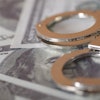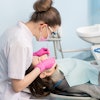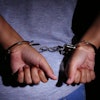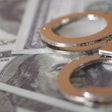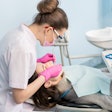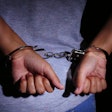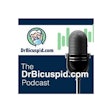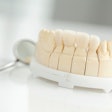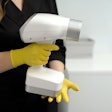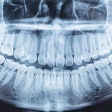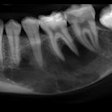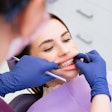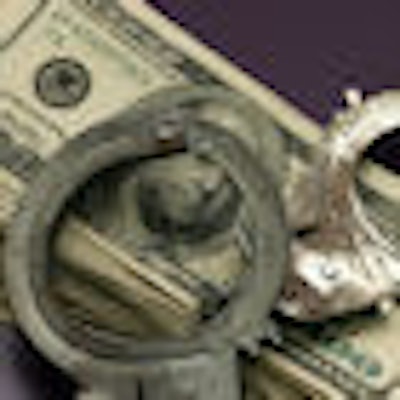
A steady stream of reports about dental operations run by unlicensed "dentists" has authorities across the U.S. cracking down on these illegal practices. And in most cases the stories are unsettlingly similar: unsanitary conditions, rudimentary equipment, illegal drug distribution, and patients with few other options.
Last month in Chicago, police arrested a man they say was running a makeshift dental office in his basement, where he allegedly used power tools instead of dental equipment and had patients spit into a garbage can rather than a sink.
And earlier this month, city officials in Chelsea, MA, closed down a dental "clinic" they described as a scene from a horror movie.
Because these individuals are not licensed to practice, the state dental boards can do little to regulate them. So other state authorities are taking the matter into their own hands. Last year the New Jersey Division of Consumer Affairs conducted investigations into unlicensed dentists that resulted in the arrest of 10 so-called dentists -- a record number of such arrests for a 12-month period in New Jersey, according to officials.
Now a similar investigation is under way in Texas, where the Dallas County District Attorney's office is currently pursuing five cases involving unlicensed dentists. Two have been presented to the grand jury, while the other three are open investigations, Dallas County assistant district attorney Raquel "Rocky" Jones told DrBicuspid.com. Over the past four years the district attorney's office has been aware of 11 cases of unlicensed practitioners, she said.
Targeting immigrants
According to Jones, two categories of people are running these businesses in Texas. One is dentists from other countries such as Mexico and Colombia who were practicing dentistry in those countries but aren't licensed in the state.
“They prey on the uninsured or illegal immigrants.”
— Raquel "Rocky" Jones, Dallas County
assistant district attorney
The others are dental technicians and assistants who have taken their work to another level. They acquire dental supplies from the practice where they work and start doing procedures on their own.
"They do all sorts of procedures, including dental cleaning, filling cavities, extractions, root canals, and even making dentures," Jones said.
These practices operate on cash only, and their target patient base is mostly the Hispanic population.
"They prey on the uninsured or illegal immigrants and find them within their neighborhoods and at churches," she said. "They operate by giving the patient their business cards and ask them to show up on certain days and certain times."
There is a concern of patients being seriously harmed because of these dentists, Jones said.
"We know of a case where a patient got dentures that did not fit and caused severe injury to the mouth," she said.
Patients rarely come forward to report these practitioners since they feel that the dentist was willing to help them when no one else was.
"Patients are loyal to these dentists, and a lot of this loyalty is because these people are Hispanic and so is the dentist," Jones said. "They don't want to bite the hand that feeds them."
Another factor is embarrassment, she said. Patients don't like to admit that they don't have health insurance.
But that is exactly the reason many of them risk going to these unlicensed operations.
"Their attraction is that they charge less and are relatively inexpensive," Danette McNew, D.D.S., a member of the Texas Dental Association (TDA) House of Delegates and a private practice dentist in Rockwall, TX, told DrBicuspid.com. "No one knows the exact prices they charge because these individuals are hidden and don't want to get out and tell people what they are making."
Another selling point for patients is that these unlicensed dentists may also be making house calls to deliver care, she added.
Putting patients at risk
Apart from dentists from other countries, a lot of these practices are also run by dentists who went to school in the U.S. but did not manage to pass their boards, according to Dr. McNew.
As a result, these practices pose a serious danger to the patients. For example, one of the most popular procedures done by them is extractions, she said.
"First of all, to perform an extraction they would have to use anesthesia, and since they are not qualified to administer it, the procedure can be very risky," Dr. McNew said. Other problems include infection control since there's a risk of passing on infections from instruments.
"Even with a procedure like bleaching, which is considered relatively simple, there are risks like burning the gum tissue ... in the hands of someone who is not qualified," she said.
Both Jones and Dr. McNew believe this practice is prevalent in many counties across Texas.
"People just cross the border and can set up a practice in areas along the border," Dr. McNew said.
In Texas, running an unlicensed dental practice is a third-degree felony. If a patient gets injured, the unlicensed practitioner can be charged with aggravated assault, which is a second-degree felony.
The Texas State Board of Dental Examiners is somewhat limited in the role it can play as they are only allowed to regulate licensed dentists. The board is limited to reporting these practices to the district attorney's office if it feels there is enough evidence to take action.
The TDA reports such practices to officials whenever it can, Dr. McNew said. "But it may not get immediate attention as it may not be a prime need," she added.
Copyright © 2010 DrBicuspid.com
